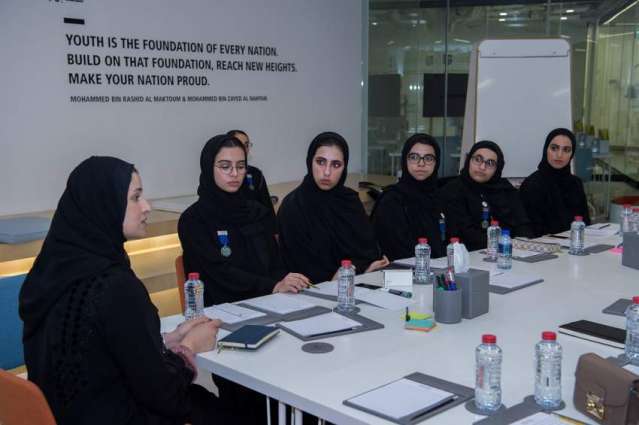The Emirates Scientists Council, ESC, has hosted, under the 'Scientist in Residence' initiative, a group of American scientists in the fields of space and Mars exploration to hold a series of workshops and discussion panels in different schools across the UAE
DUBAI, (Pakistan Point News - 04th Apr, 2019) The Emirates Scientists Council, ESC, has hosted, under the 'Scientist in Residence' initiative, a group of American scientists in the fields of space and Mars exploration to hold a series of workshops and discussion panels in different schools across the UAE.
The Scientist in Residence initiative aims to open channels of direct communication between renowned scientists and school students to motivate them to choose scientific majors. It also aims to move to a new level of promoting the role of science in the UAE, and equip students with skills that will qualify them to conduct specialised scientific researches and experiments contributing to the scientific landscape in the UAE.
The initiative hosted Professor David Brain, Assistant Professor for Astrophysical, Planetary, and Atmospheric Science at the University of Colorado Boulder; Professor Christopher Edwards, Assistant Professor of Physics and Astronomy in the Northern Arizona University, Geologist Mikki Osterloo, and Geophysics Professor Robert Lillis.
The visit included holding a series of workshops and discussion panels in a number of schools in the UAE. It featured a lecture delivered by Professor David Brain for Jumeirah English Speaking School and Al Reyada School in Abu Dhabi, where he explained to the students why the UAE is sending a spacecraft to study Mars. What will it do, why is it there, and why do we care about Mars. Also, he described the important contributions EMM will make to understanding Mars and its ability to support life, and how we might use those lessons to understand planets everywhere in our galaxy.
Another lecture was delivered by Professor Christopher Edwards in Al Salam School in Dubai, during which he talked about robotic vehicles used in exploring Mars, methods of sending these vehicles and their contributions in scientific researches. He also shed light on the ways used in sending spacecraft to place them in Mars orbit or land them on the surface of the planet.
During the visit, Professor Robert Lillis held an interactive lecture with students of Al Shoumoukh School in Al Dhafra in Abu Dhabi.
Lillis talked during the lecture about the varieties of Mars aurora and explained how does the colourful aurora of Mars form as a result of solar and space particles colliding with the planet's atmosphere particles. He also explained the formation of Martian aurora and how would it look like in case a human settlement was established on the planet in the future. For her part, Geologist Mikki Osterloo talked about Martian rocks and the composition of the planet’s soil during a discussion with students of Umm Al Arab School in Abu Dhabi. She shed light on the importance of knowing the composition of Mars soil in order to identify how it can be used in agriculture or in making construction materials that can be used in building human settlements there.
The visit was concluded with a field trip to Mleiha Archaeological Centre in Sharjah with the participation of scientists of the Emirates Mars Mission Hope Spacecraft, and the company of a group of students. The trip aimed to introduce students to the geological features of Earth, and how to use these characteristics as a reference in studying the geological features of Mars. A session was also held at the sidelines of the visit to discuss the outcomes of the field trip.
The Emirates Scientists Council launched the ‘Scientist in Residence’ initiative in collaboration with the Ministry of education last year to transform the way students study STEM subjects and to encourage them to develop their interests across a range of scientific disciplines.




